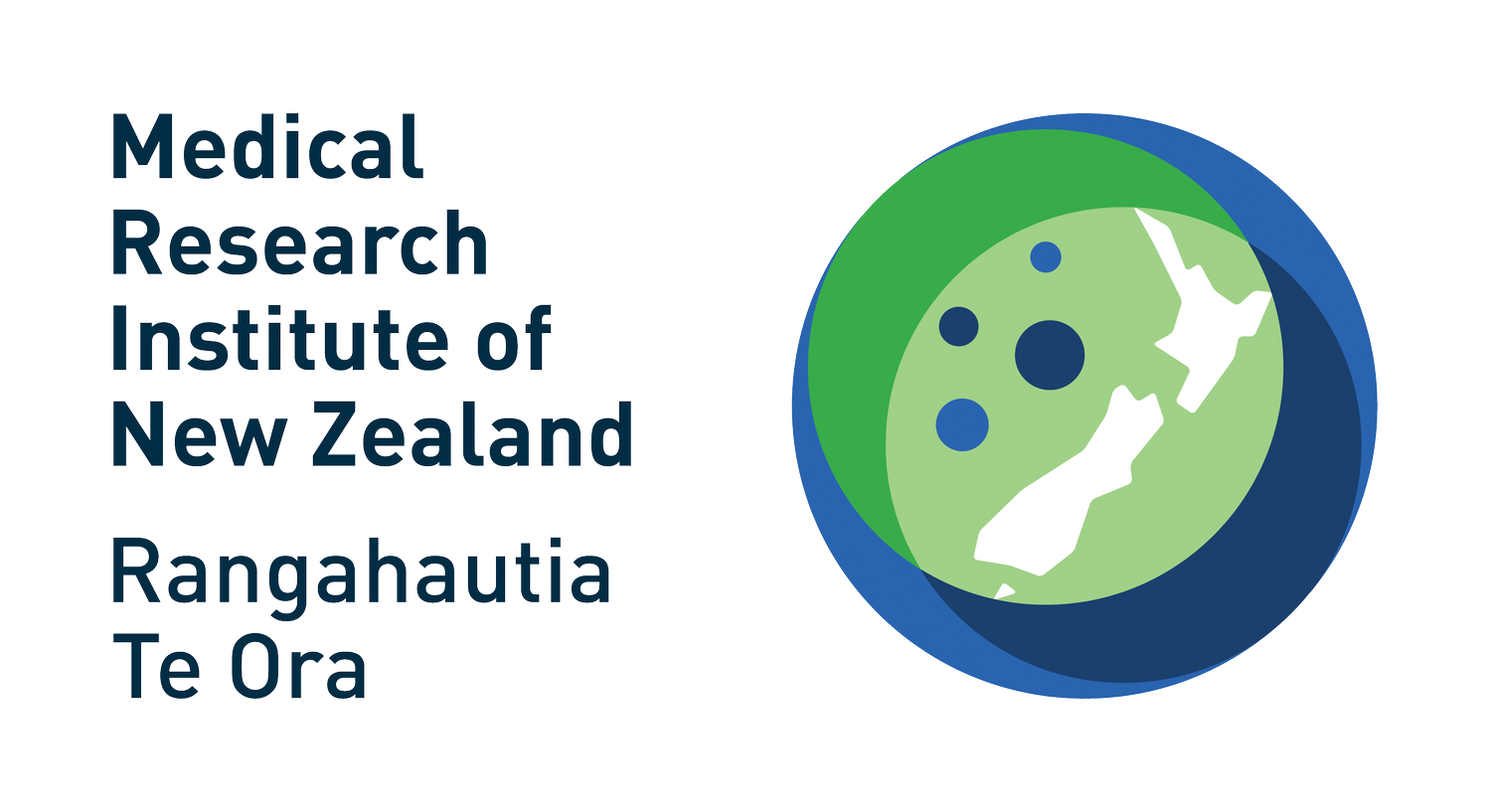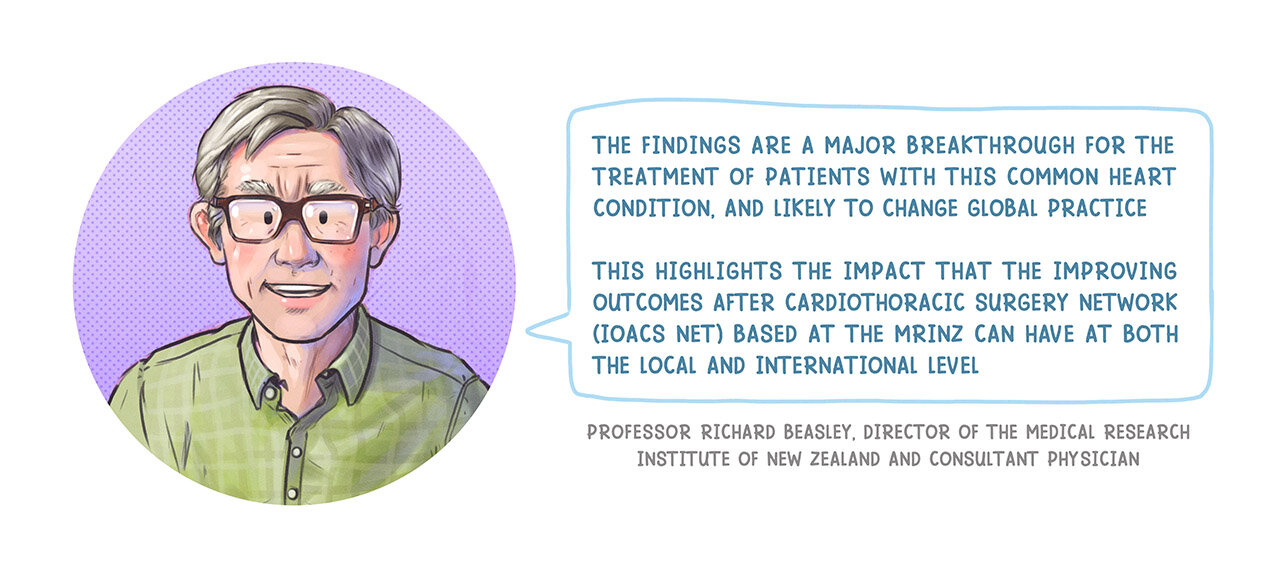LAAOS III: an extra 6 minutes in heart surgery reduced the risk of stroke for years
Atrial fibrillation (AF) is a common medical condition where the upper chambers of the heart don't always beat in a coordinated way with the lower chambers. People can experience palpitations when this happens, and in a certain part of the heart — the left atrial appendage — this can lead to blood becoming stagnant and forming clots. These clots are at risk of dislodging and being pumped into the brain, where they can block vessels to cause a stroke. The clots also risk being pumped into other parts of the body, where they can cause trouble by cutting off the blood supply.
Above: cartoon showing how atrial fibrillation can lead to stroke. Art by Dr Ciléin Kearns (artibiotics)
The left atrial appendage can be surgically 'blocked off' in several ways to prevent clot formation, theoretically preventing this kind of stroke in patients with AF. However, until now, there has been no definitive evidence to prove whether this is effective.
Above: illustration of one method of LAA occlusion – surgical removal. Art by Dr Ciléin Kearns (artibiotics)
129 patients from Auckland, Waikato and Wellington Hospitals, contributed to this large international study, which included 4770 participants, across 105 centres, in 27 countries. New Zealand trial lead Dr Shay McGuinness, Medical Research Institute of New Zealand (MRINZ) Senior Clinical Research Fellow, was the principal investigator for the Auckland District Health Board site.
Dr Shay McGuinness says “In my view this is the most important recent study conducted in cardiac surgery. Quite simply it's a game-changer for patients who have a history of atrial fibrillation who need open heart surgery. At the time of their main surgery, they can have their left atrial appendix closed with no additional risk of bleeding or other complications. Our study showed that this dramatically reduced the risk of stroke for many years after the procedure."
2379 trial participants worldwide were randomly selected to have their left atrial appendage closed during cardiac surgery, while a control group of 2391 did not. Both were followed up for an average of almost 4 years, and it was found that stroke or other embolism occurred 33% less commonly in those in the occlusion group compared to the control group. There were no differences in the rates of bleeding during the operation, complications after, or death. This means the study was able to prove that the occlusion procedure helped to prevent stroke in patients with AF and did not increase the rates of complications.
Sketch overview of the LAAOS III trial findings that there was approximately 33% lower incidence of stroke or systemic embolism in those who had their left atrial appendage occluded at the time of cardiac surgery.
The finding opens a new approach for stroke prevention in atrial fibrillation and will undoubtedly be incorporated into local and international guidelines.
MRINZ’s established Cardiothoracic Research Programme IOACS Net (the Improving Outcomes After Cardiothoracic Surgery Network), has been exploring the care of patients undergoing cardiac surgery at public hospitals across New Zealand since 2015. MRINZ also has a long history of stroke research, with a particular focus on ethnic disparities in post-stroke outcomes, and self-rehabilitation.
Professor Richard Beasley, Director of MRINZ says, “the findings from this trial have the power to change clinical practice both in Aotearoa New Zealand and globally, due to the marked reduction in risk of stroke with this surgical procedure. The LAAOS III study highlights the impact that the dedicated work of our IOACS Net cardiac surgeons, anaesthetists, intensivists, clinical perfusionists and researchers can have both locally and internationally.”
The Improving Outcomes after Cardiac Surgery Network (IOACSNet) is a Cardiac Surgical research programme based at the MRINZ, in Wellington. IOACSNet aims to improve patient outcomes through the generation of high-quality clinical evidence, particularly through the involvement of New Zealand cardiac surgical centres in high quality international clinical trials and by having a structured programme for the translation of such evidence into clinical practice.
Read more
You can read more about LAAOS III here:
NEJM publication: http://doi.org/10.1056/NEJMoa2101897
NEJM Editorial: http://doi.org/10.1056/NEJMe2106069
Media coverage
New Zealand Doctor: https://www.nzdoctor.co.nz/article/undoctored/landmark-study-delivers-major-stroke-prevention-breakthrough-treatment-common
TCT MD: https://www.tctmd.com/news/occluding-laa-during-surgery-lowers-stroke-risk-laaos-iii
American College of Cardiology: https://www.acc.org/latest-in-cardiology/articles/2021/05/12/18/51/sat-9am-laaos-iii-acc-2021
New Zealand Doctor (paywalled): https://www.nzdoctor.co.nz/article/news/simple-procedure-during-heart-surgery-reduces-stroke-risk-atrial-fibrillation-patients
Medscape (paywalled): https://www.medscape.com/viewarticle/951232






